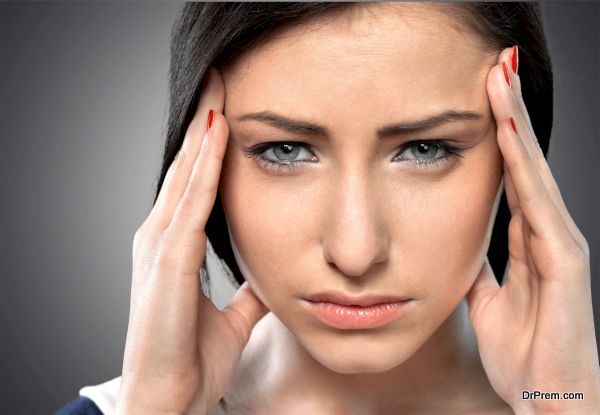In today’s society, even with all of the advancements that have been made in clinical psychiatry, and efforts made by advocacy networks like the National Association of Mental Illness, or NAMI, to educate people about mental illnesses and disorders, it seems that many people still have quite a few misconceptions about the subject.
We would like to dispel a few of the incorrect, yet commonly held beliefs, and shed a little light on the facts of life for millions of Americans who suffer from mental illness. Here are 5 myths about mental health that we all need to stop believing.
Myth 1. You Don’t Need Therapy, Just Take a Pill to Feel Better
Many people think that psychiatric care is as simple as taking a pill to feel better. While medication is an effective treatment for many individuals affected by mental illness, it isn’t the only treatment or the most effective for everyone. Since every individual case is different, the most effective treatments will also vary from case to case. For many people who are affected by mental illness, psychiatric therapy is a powerful method of treatment.
1-on-1 talk sessions and group therapy sessions with qualified counselors and psychiatrists allow patients to give voice to the factors of their illness and identify unhealthy patterns of behavior, as well as identify triggers that exacerbate their symptoms. They will often be taught healthy coping mechanisms for dealing with their symptoms. Art therapy can allow patients to express their feelings through creative means, and teach them to channel negative emotions in constructive ways.
Myth 2. Mental Illness is a Weakness
Nobody would choose to have a physical ailment. So why would anyone choose to have a mental illness? The answer is that they wouldn’t. Some people think that mental illness makes a person weak, or that having emotional issues somehow makes an individual less valuable as a person. This is simply not the case. Many very successful people are afflicted by mental illnesses, yet still, lead full and productive lives.
People with mental illnesses are still people, and still as worthy of respect and equal treatment just as much as any other human being. It is important to always practice patience and understanding when dealing with a person who has a mental illness. Sometimes day to day life can be very hard for people who suffer from conditions like chronic depression and anxiety disorders, and others should be tactful when dealing with them.
Myth 3. Mental Illnesses are uncommon
Some people think that mental illnesses don’t affect that many people, but this simply is not the case. Mental illness is actually very common in the united states. According to the National Institute for Mental Health, or NIMH, In 2015, there were an estimated 43.4 million adults aged 18 or older in the United States who lived with a mental illness. This number represented 17.9% of all U.S. adults.
Statistics also show that mental illness also affects every demographic of people, regardless of race, or gender. Mental illness also affects adults of all ages, as well as children. Studies show that an estimated 46.3% of people between the ages of 13-19 years old live with mental disorders, and a further 21.4% live with a severe mental disorder. Certainly, mental illness is not uncommon, by any means.
Myth 4. People with Depression are “Just Sad”
Sure, everyone gets sad from time to time. Maybe over a breakup or a death in the family, but for people living with depression, the reality of life is that this kind of feelings run much deeper than that. People with depression have symptoms regardless of external circumstance. Depression is caused by chemical imbalance in the brain, and symptoms of depression can include low self-worth, feelings of hopelessness, apathy, and despair, just to name a few.
It’s not just as easy as telling someone to “cheer up” or “get over it”. If people with depression could do it that easily, they would. In 2015, as reported by NIMH, an estimated 6.7%, or 16.1 million adults in the United States had a major depressive episode. That’s quite a few people who undoubtedly don’t want to suffer from mental illness and would probably love to be able to just “get over it,” but the reality is that depression is a valid illness with scientific study and clinical opinion to back that statement up.
Myth 5. Psychiatric Institutions are Bad Places
In the past, it was a common belief that institutional homes and sanitariums were the best places for people with mental illnesses. In the first half of the 20th century, psychiatric medicine was in its infancy. Care was not as advanced and illnesses were not as understood as they are today. This led to many people being put into psychiatric institutions by families who simply did not know how to care for them. With psychiatric medicine being very unadvanced and rudimentary as it was at the time, many people were subjected to often experimental and less than humane methods of treatment.
In today’s world, science, medicine, and ethics have come a lot farther than in previous times. Not only can a psychiatric treatment center be the first step in treatment, it’s often the place where people feel most comfortable opening up about their symptoms.
The understanding of effective treatments and advancements in cutting-edge neuropsychiatric care means that patients who require intensive treatments like TMS, ECT, and other brain stimulation therapies for severe mental illnesses can receive non-invasive, outpatient care in professional and comfortable environments. On top of that, they can still lead normal day-to-day lives in the comfort of their own home.
Conclusion
Mental illnesses are common. They are treatable. Having a mental illness does not make a person weak, and psychiatric medicine has gotten better and easily accessible resource in America today. People with mental illnesses can still lead bright and enjoyable lives if they find the right methods of treatments for their particular set of symptoms.
Do you suffer from depression or anxiety disorders? What treatments have you or they found effective in treating your illness? Leave us a comment with your response in the section below.
Article Submitted By Community Writer







